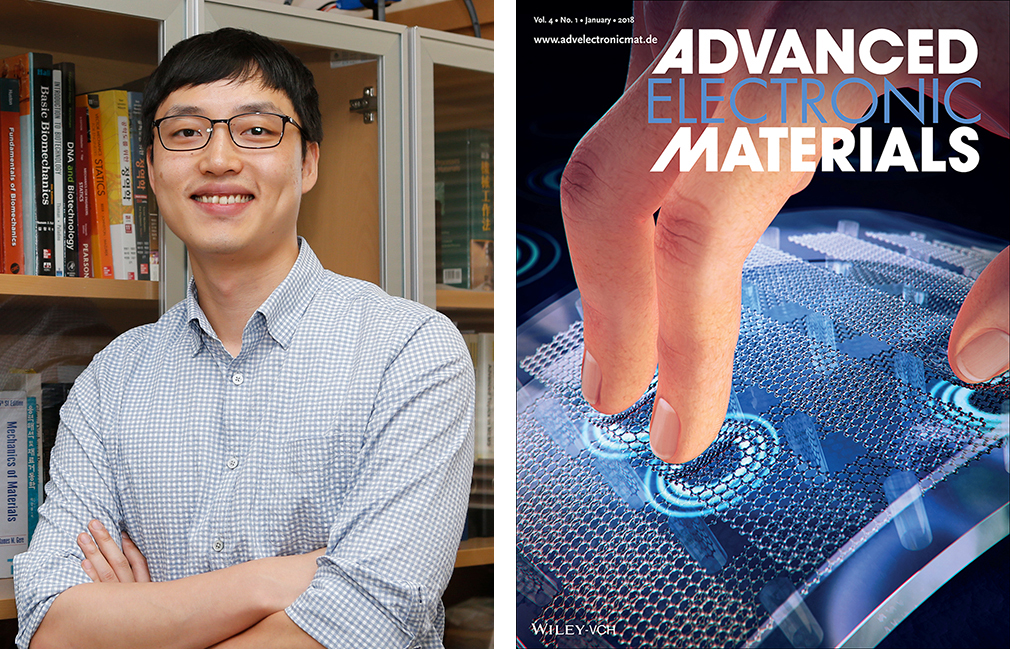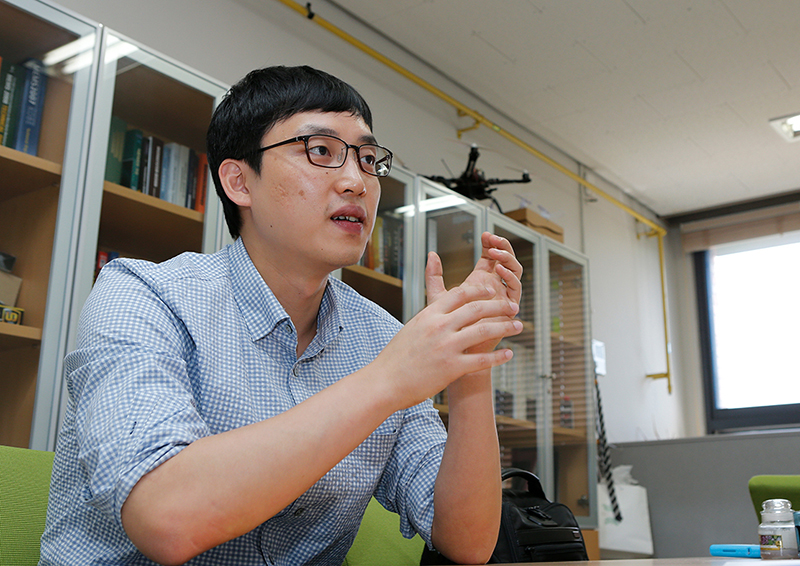‘Touch Sensor’ that can be Applied in Next Generation Displays Developed N
No.89033- Writer pr
- Date : 2018.02.07 14:18
- Views : 8204
YU Professor Choi Jung-wook – Yonsei University Professor Kim Jong-baek teams up for joint research
Produced transparent and flexible touch sensor that can precisely detect the location and size of multi-pressure
Published on cover of the latest issue of SCI academic journal in the new materials sector
[February 1, 2018]
Produced transparent and flexible touch sensor that can precisely detect the location and size of multi-pressure
Published on cover of the latest issue of SCI academic journal in the new materials sector
[February 1, 2018]

<School of Mechanical Engineering Professor Choi Jung-wook’s (left) thesis was published on the cover of the academic journal 'Advanced Electronic Materials' (right)>
YU School of Mechanical Engineering Professor Choi Jung-wook (34) succeeded in developing a highly sensitive touch sensor that can be applied in multi touch screens and next-generation wearable displays.
With the recently high interest in Internet of Things (IoT), there has been a growing demand for various sensor technologies. In particular, there is active research going on for touch sensors to be used in touch screens for mobile phones, tablet PCs, etc. as well as for use in wearable displays.
Professor Choi teamed up with Yonsei University Professor Kim Jong-baek’s research team to develop a transparent and flexible touch sensor that can measure pressure from various points. Unlike other multi-touch sensors, it can detect size and location of pressure precisely as soon as the pressure is applied in multiple points.

Professor Choi said, “In past research, the electrode, which is an important element of the touch sensor, was comprised of non-transparent and easily breaking materials such as metals and indium oxide, so there were limitations in using them as flexible sensors in reality. In addition, it is necessary to be able to accurately measure the size and location of pressure being applied for ideal multi touch recognition, but most research in the past focused on improving sensitivity.” He went on saying, “There were no studies conducted on transparent and flexible touch sensors that can measure the exact location where pressure was applied. In this research, we succeeded in producing transparent and flexible touch sensors using graphene electrode arrays integrated with plastic boards.”
The results of this study was carried on the cover of the latest issue (January 10, 2018) of the globally acclaimed academic journal in the new materials sectors, <Advanced Electronics Materials (impact factor (IF)) 4.193).
Professor Choi stated, “I believe that the sensor that we developed will be applied not only in multi-touch screens, but also in wearable displays that are receiving attention as next-generation electronic devices. In addition, as the entire production process of the sensor is made in a single process, it has very high productivity and yield, so it will help with carbon nano material-based practical element distribution.
Professor Choi earned his PhD in mechanical engineering at Yonsei University and completed his post-doctorate at Purdue University in the United States, and began working as a professor at YU since 2016. His major field of research is micro and nano electro-mechanical systems, and he mainly conducts research on micro energy transformation elements and wearable electronic devices using nano materials, sensors and nano compounds.